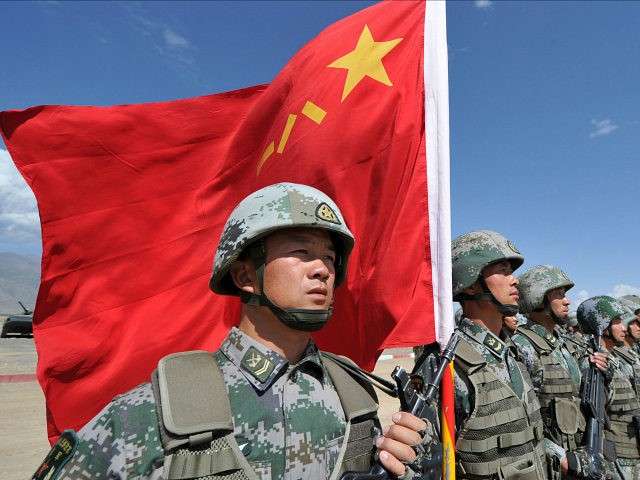China’s Global Times on Monday said the Easter Sunday bombings in Sri Lanka should inspire Asian countries to “strengthen coordination” on terrorism and offered China’s leadership on the issue, citing China’s history as a “victim of terrorism.”
Although the Uighur Muslims are not explicitly mentioned in the article, their ghosts haunt its every mention of Asian terrorism and invocation of China’s victim status. The Chinese constantly cite the history of unrest in Xinjiang province to justify the immense re-education camps they have constructed to house hundreds of thousands of Uighurs and “re-educate” them away from religious extremism.
The Global Times editorial was also sympathetic towards Malaysia’s response to “radicalization,” which has become a major threat to the prison population in that country:
What happened in Sri Lanka sounds the alarm for all countries in Asia, a region that has already been plagued by terrorism and extremism. China itself is a victim of terrorism. In Southeast Asia, Singapore had been targeted by foreign IS militants and Malaysia is battling a rise in the radicalization of the local population. The Central Asian region has long seen terrorism as a cross-border phenomenon, and to the South, India and Pakistan are also disrupted by constant terror attacks.
Faced with the common threat of humanity, all Asian countries seem to be unanimous in their condemnation of terrorism. China has offered firm support to the Sri Lankan government’s efforts to maintain national security and stability.
Indian Prime Minister Narendra Modi condemned in the strongest terms the serial terror attacks in Sri Lanka and also offered assistance to the country for security against terror-related challenges.
Based on these consensuses, it is high time that SCO set up a coordinated system to fight terrorism in the region in an efficient and effective manner.
The SCO is the Shanghai Cooperation Organization, a group that includes China, Russia, Pakistan, India, and Central Asian republics like Kazakhstan. Sri Lanka is considered a “dialogue partner” of the SCO.
The group began in 2001 as a security collective but has since assumed a broader, fuzzier identity as an economic and political club whose meetings are often marked by friction between India and Pakistan, and between China and Russia as they compete for influence in Central Asia. The Chinese hope to reform the SCO as a more effective security cooperative to protect their Belt and Road infrastructure investments.
In the Global Times’ telling, the SCO has been busy “shouldering the task of rooting out the three evil forces, namely terrorism, separatism, and extremism, with a focus on Central Asia and South Asia.”
The Chinese wish to refocus the organization as a “single global anti-terrorism front with the U.N. playing a central coordinating role,” as the Global Times put it.
The “three evil forces” reference is not a mere rhetorical flourish; the concept was officially adopted by the SCO at China’s urging to give the member a common adversary they could unite against, and to dispel cynicism that the SCO was devolving into an anti-Western “anti-NATO” to suit Russian and Chinese foreign policy.
Membership was extended to India and Pakistan in 2017 to give the organization more credibility as a regional alliance dedicated to combating extremism. Convincing those rival nations to participate in a joint military exercise in Russia in 2018 was one of the SCO’s most important achievements in enhancing regional stability.
“Further anti-terrorism cooperation within the SCO requires mutual trust, while mutual trust can only be gained through more cooperation. In the wake of the attacks in Sri Lanka, the SCO should strengthen cooperation among its member states, observers and dialogue partners and, when necessary, consider including more regional countries which would contribute to this arduous process,” the Global Times advised.
The current Secretary-General of the SCO, Vladimir Norov, offered condolences to Sri Lanka on Monday for the “devastating terrorist attack” perpetrated on Easter Sunday.
“These violent terrorist acts have once again confirmed relevance and necessity of consolidation of our efforts for elimination of the menace of terrorism,” said Norov.
“The Shanghai cooperation organization strongly condemns terrorism in all its form and manifestations and reiterates its firm determination and commitment to work with regional partners and international organizations to eradicate the scourge of terrorism. I hope that the perpetrators of this wicked act will be found and punished,” he said.

COMMENTS
Please let us know if you're having issues with commenting.